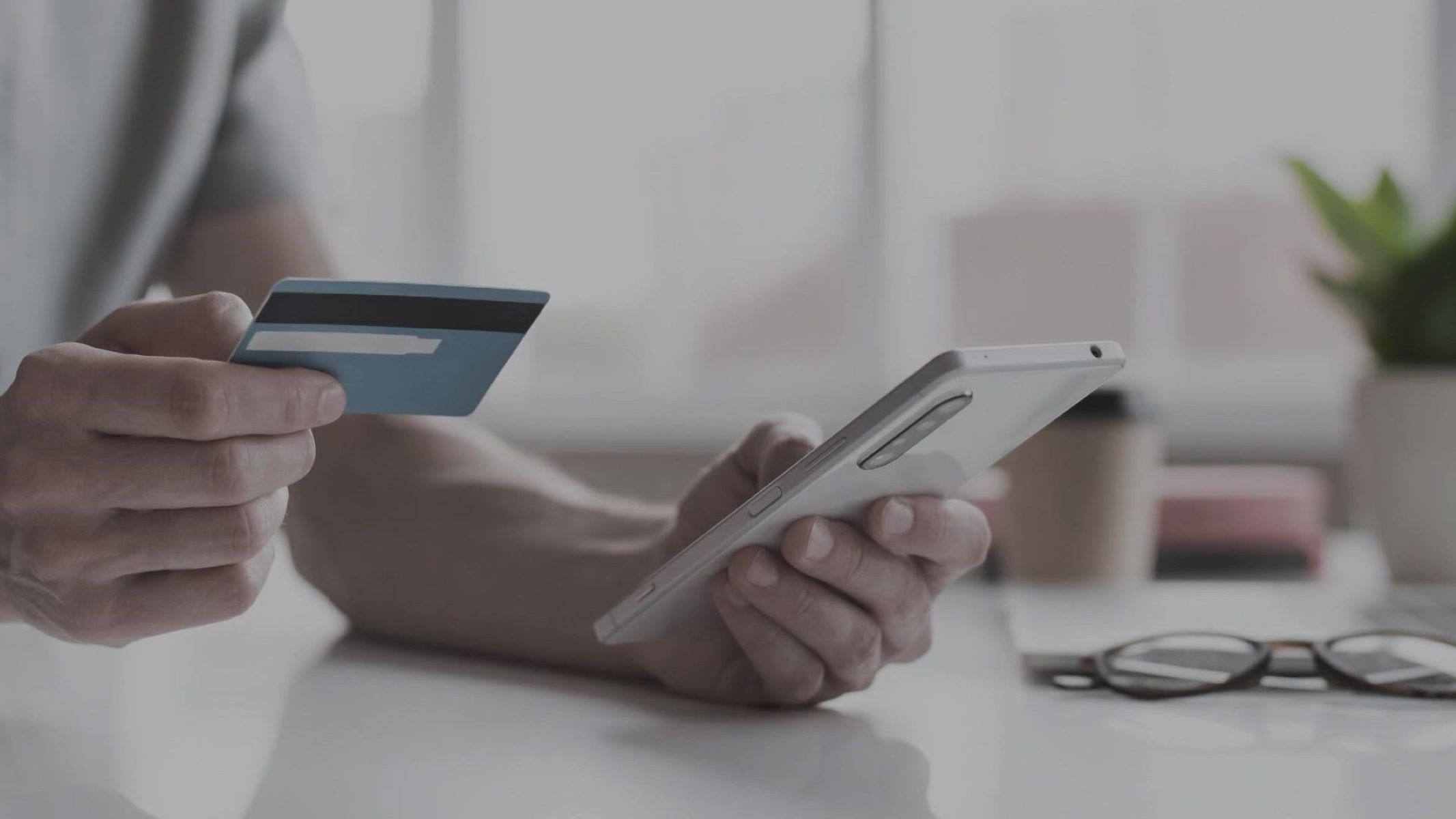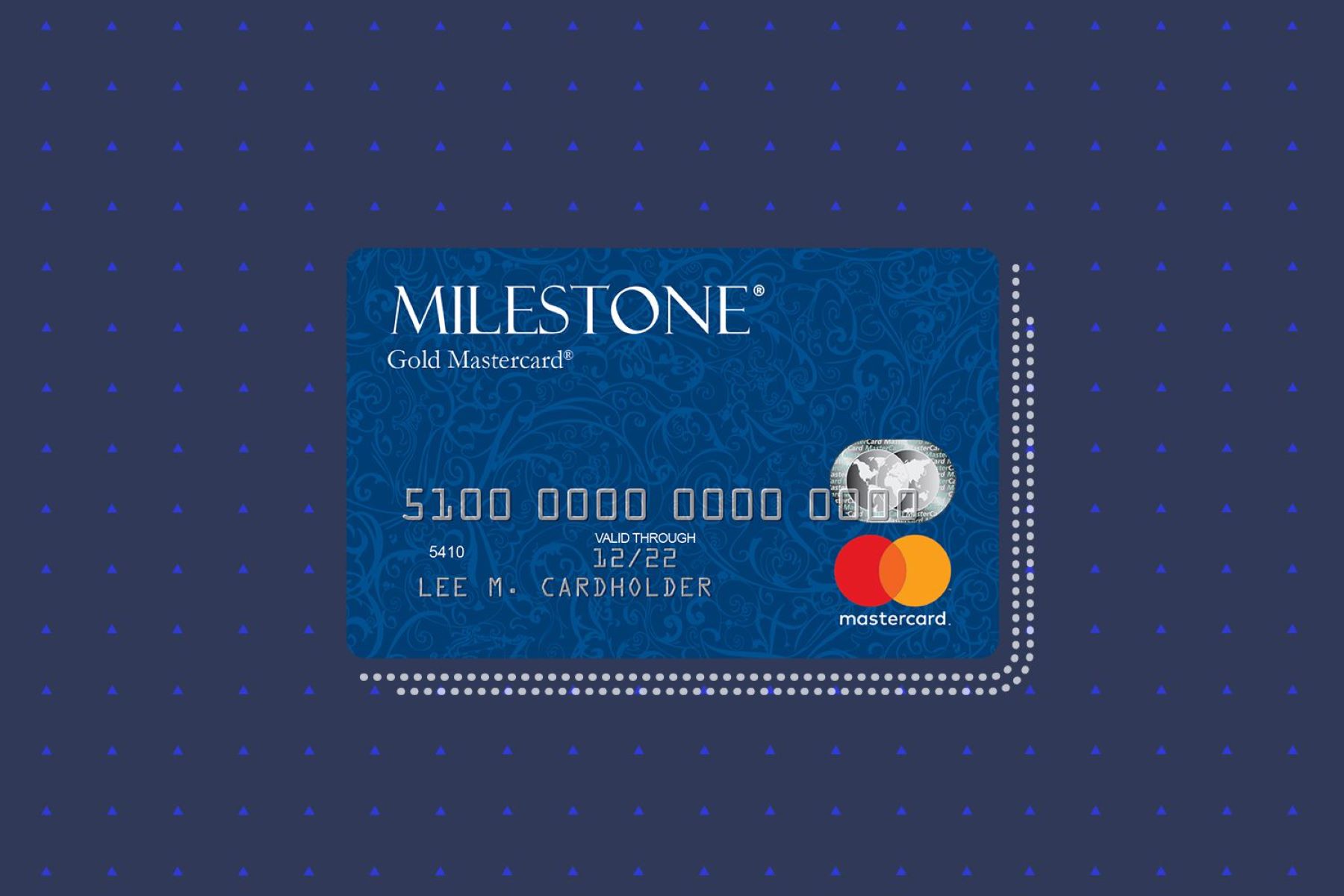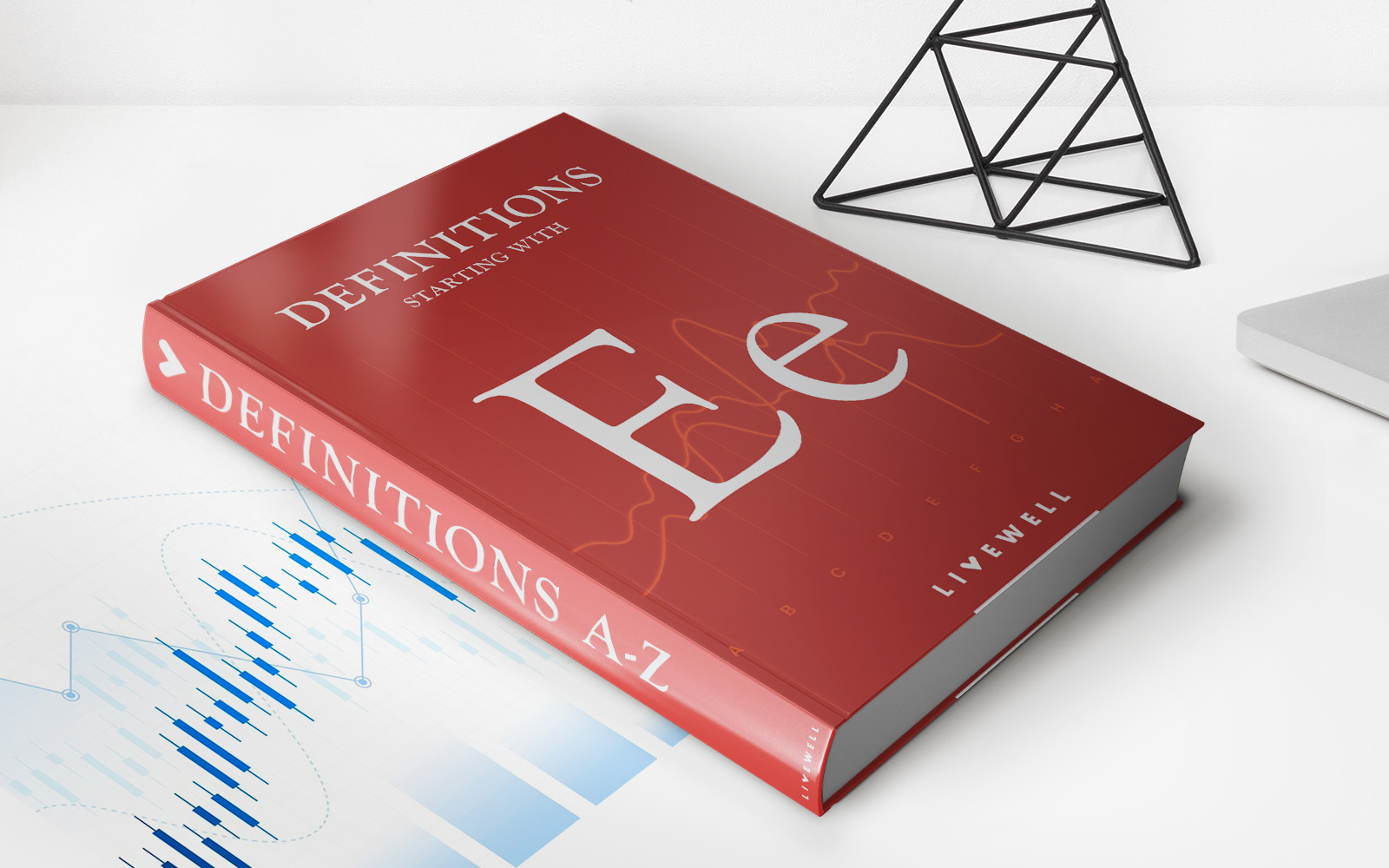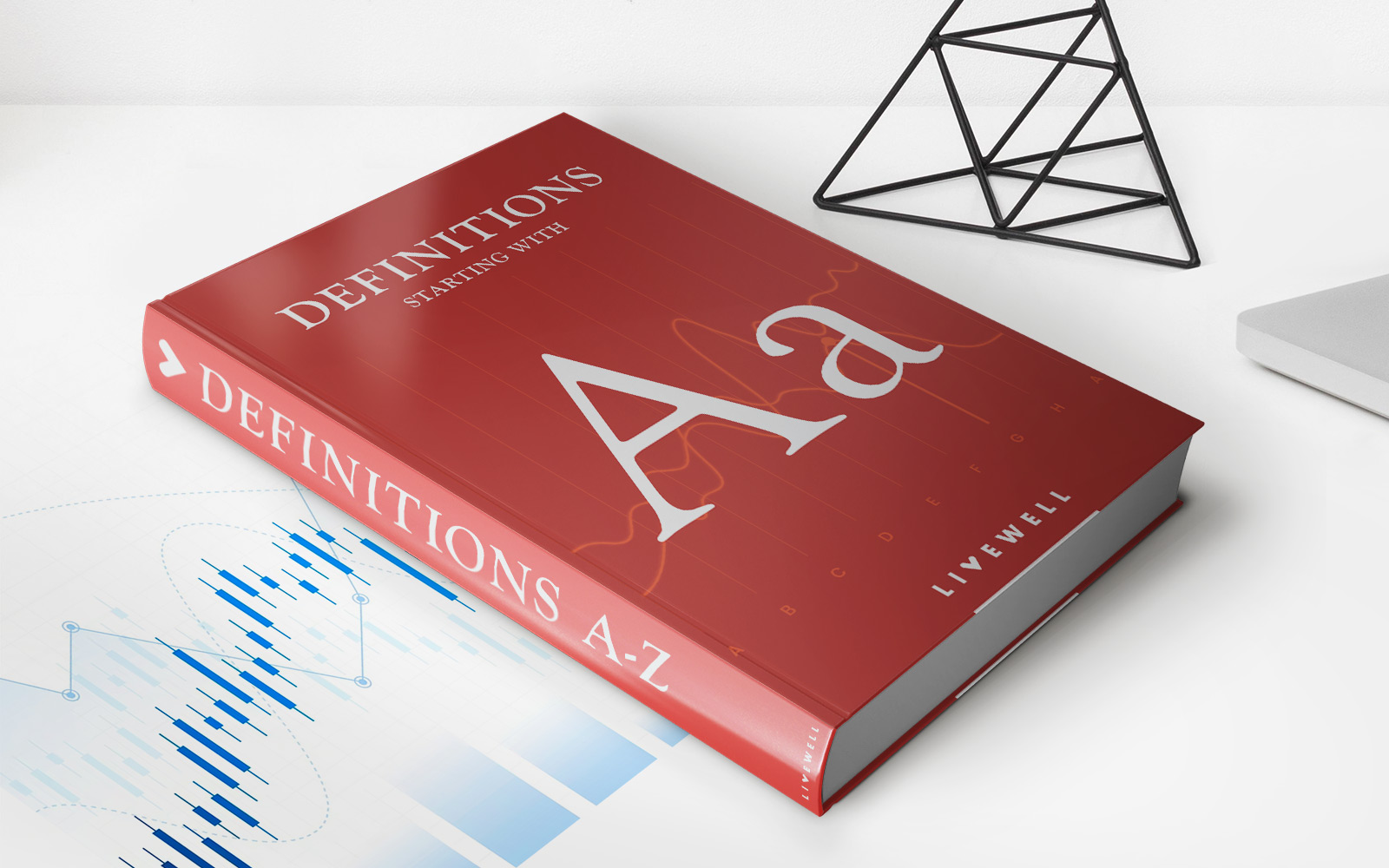

Finance
How Can I Pay Off My Debt On My Credit
Modified: February 25, 2024
Looking for ways to pay off your credit debt? Get expert tips and advice on managing your finances and tackling your debt head-on.
(Many of the links in this article redirect to a specific reviewed product. Your purchase of these products through affiliate links helps to generate commission for LiveWell, at no extra cost. Learn more)
Table of Contents
- Introduction
- Understanding Your Credit Debt
- Assessing Your Financial Situation
- Creating a Budget
- Prioritizing and Planning Debt Payments
- Exploring Debt Repayment Strategies
- Negotiating with Creditors
- Avoiding Common Debt Repayment Pitfalls
- Building a Strong Credit History
- Seeking Professional Help and Counseling
- Conclusion
Introduction
Debt can be a major financial burden that weighs heavily on individuals and families. It can hinder your ability to achieve financial goals, create stress, and limit your options. One common type of debt that many people struggle with is credit debt. Credit debt refers to the amount of money owed on credit cards or other lines of credit.
Managing and paying off your credit debt is crucial for your long-term financial well-being. It can help improve your credit score, eliminate high interest payments, and provide you with greater financial freedom. However, tackling credit debt can feel overwhelming, especially if you have multiple credit cards or loans.
In this article, we will explore effective strategies and tips to help you pay off your credit debt. Whether you have a small amount of credit debt or a significant balance, these strategies can guide you towards financial freedom. By following these steps, you can regain control of your finances and work towards a debt-free future.
Before diving into the details, it’s important to note that paying off credit debt requires discipline, commitment, and a realistic assessment of your financial situation. It won’t happen overnight, but with perseverance and the right strategies, you can make significant progress and ultimately become debt-free.
Throughout this article, we will discuss various aspects of credit debt repayment, including understanding your credit debt, assessing your financial situation, creating a budget, prioritizing and planning debt payments, exploring debt repayment strategies, negotiating with creditors, avoiding common debt repayment pitfalls, building a strong credit history, and seeking professional help and counseling.
Remember, paying off your credit debt is a journey, and it’s important to be patient with yourself. By following the guidance and implementing the strategies discussed in this article, you can take a major step towards regaining control of your finances and achieving a debt-free future.
Understanding Your Credit Debt
Before you can effectively tackle your credit debt, it’s important to have a clear understanding of what it is and how it affects your financial situation. Credit debt refers to the amount of money you owe on your credit cards or other lines of credit.
One key aspect of credit debt is the interest rate. When you carry a balance on your credit card, you are charged interest on that amount. This interest can quickly accumulate over time, making it more challenging to pay off your debt. It’s important to be aware of the interest rates associated with each of your credit cards, as higher rates can significantly impact your repayment efforts.
Another factor to consider is the minimum payment. Most credit card issuers require a minimum monthly payment, which is typically a small percentage of your total balance. While making the minimum payment is important to avoid late fees or penalties, it’s essential to understand that it will prolong the time it takes to pay off your debt and increase the total amount you will repay.
Additionally, it’s important to be aware of any hidden fees or charges on your credit cards. Some credit card issuers may charge annual fees, balance transfer fees, or foreign transaction fees. These fees can add up and increase your overall debt, so it’s crucial to review your credit card statements carefully.
Understanding the terms and conditions of your credit cards is vital in managing your credit debt. Take the time to read through the fine print and familiarize yourself with the terms, including the interest rates, fees, and any promotional offers that may exist. This knowledge will help you make informed decisions and plan your repayment strategy effectively.
Moreover, it’s crucial to have a complete picture of your credit debt. Make a list of all your outstanding balances, minimum payments, interest rates, and due dates for each credit card and loan. This will help you get a clear overview of your financial obligations and allow you to develop a realistic plan for paying off your credit debt.
Gaining a thorough understanding of your credit debt is the first step towards taking control of your financial situation. By familiarizing yourself with the terms, fees, and conditions associated with your credit cards, as well as having a comprehensive overview of your debt, you can make informed decisions and develop effective strategies to pay off your credit debt.
Assessing Your Financial Situation
Before embarking on your journey to pay off your credit debt, it’s crucial to assess your overall financial situation. Understanding your income, expenses, and financial obligations will help you create a realistic plan to successfully manage and repay your debt.
The first step in assessing your financial situation is to determine your income. Calculate your monthly take-home pay after taxes and deductions. This includes your salary, wages, and any additional sources of income.
Next, list your monthly expenses. Categorize them into fixed expenses, such as rent or mortgage payments, utilities, and insurance premiums, and variable expenses, such as groceries, entertainment, dining out, and transportation costs. Be thorough when identifying your expenses, as it is crucial to have an accurate understanding of where your money goes each month.
Once you have a clear understanding of your income and expenses, calculate your debt-to-income ratio. This ratio compares your monthly debt payments to your gross monthly income. It gives you an indication of how much of your income goes towards debt repayment and can help you determine if your level of debt is manageable.
In addition to assessing your income and expenses, it’s important to review your credit report. Obtain a free copy of your credit report from each of the major credit bureaus and carefully review it for any errors or discrepancies. This will help you identify any outstanding debts, late payments, or other potential issues that may be impacting your credit score.
Another crucial aspect of assessing your financial situation is understanding your financial goals and priorities. Determine what you want to achieve financially, whether it’s saving for a down payment on a house, starting a retirement fund, or paying for your children’s education. Having specific financial goals will provide motivation and direction as you navigate your credit debt repayment journey.
Finally, consider seeking the assistance of a financial professional or credit counselor. These experts can provide personalized advice tailored to your unique financial situation. They can help you analyze your finances, create a budget, and develop a debt repayment plan that aligns with your goals and resources.
By taking the time to assess your financial situation, you lay the foundation for effective credit debt management. Understanding your income, expenses, debt-to-income ratio, credit report, and financial goals will enable you to make informed decisions and develop a realistic plan to pay off your credit debt.
Creating a Budget
Creating a budget is a critical step in effectively managing your finances and paying off your credit debt. A budget allows you to track your income and expenses, identify areas where you can cut back, and allocate funds towards debt repayment.
To start creating a budget, gather all your financial information, including your income, expenses, and debt obligations. Begin by listing your sources of income, such as your salary, wages, side gigs, or any investment income.
Next, list all your expenses, including both fixed and variable expenses. Fixed expenses are regular payments that remain relatively consistent month to month, such as rent or mortgage payments, utility bills, insurance premiums, and loan payments. Variable expenses, on the other hand, tend to fluctuate more, such as groceries, transportation costs, entertainment, and dining out.
Once you have a clear understanding of your income and expenses, compare the two to determine your disposable income. This is the amount of money left after deducting all your expenses from your income. Ideally, you want this amount to be positive, indicating that you have surplus funds available for debt repayment.
If your disposable income is negative or minimal, it’s crucial to review your expenses and identify areas where you can cut back. Look for discretionary expenses that can be reduced or eliminated, such as eating out less frequently, reducing entertainment expenses, or finding ways to save on transportation costs. Making small adjustments in multiple areas of your budget can add up and provide more funds for debt repayment.
When creating your budget, it’s important to allocate a specific amount towards debt repayment each month. Set a realistic goal based on your disposable income and desired timeline for paying off your credit debt. This will ensure that you are consistently making progress towards your debt-free goal.
Consider using budgeting tools and apps to help you track your spending, set financial goals, and monitor your progress. These tools can provide visual representations of your budget and offer insights into your spending habits.
Remember, creating a budget is not a one-time task. It is an ongoing process that requires regular monitoring and adjustments as your financial circumstances change. Review your budget periodically to ensure that it aligns with your goals and reflect any changes in your income or expenses.
By creating a budget, you gain better control over your finances and equip yourself with the necessary tools to pay off your credit debt. It provides a roadmap for managing your income, expenses, and debt obligations, ultimately helping you make progress towards financial stability and freedom.
Prioritizing and Planning Debt Payments
Once you have a clear understanding of your financial situation and have created a budget, the next step is to prioritize and plan your debt payments. Prioritizing your debt allows you to focus on paying off high-interest debts first, saving you money in the long run and accelerating your journey to becoming debt-free.
Start by listing all your outstanding debts, including credit card balances, personal loans, and any other lines of credit. Include the outstanding balance, minimum payment, and interest rate for each debt. This comprehensive list will serve as a reference point for prioritizing your payments.
One popular method of prioritizing debt payments is the snowball method. With this approach, you focus on paying off your smallest debts first while making the minimum payments on all other debts. Once the smallest debt is paid off, you move on to the next smallest debt, and so on. This method provides a sense of accomplishment and motivation as you see your debts being eliminated one by one.
Another approach is the avalanche method, which focuses on paying off debts with the highest interest rates first. By tackling high-interest debts, you minimize the amount of interest paid over time and can save more money in the long run. Make the minimum payments on all debts and allocate extra funds towards the debt with the highest interest rate. Once that debt is paid off, move on to the next highest interest rate debt.
Choose the debt repayment method that resonates with you and aligns with your financial situation. While the snowball method may provide psychological benefits, the avalanche method may save you more money on interest payments. Use debt repayment calculators or consult a financial professional to determine which approach is most suitable for you.
In addition to prioritizing your debt payments, it’s important to plan the amount you will put towards debt repayment each month. Review your budget and determine how much you can realistically allocate towards paying off your debts. Make it a priority to consistently make payments and avoid accruing more debt.
Consider making extra payments or increasing the amount you allocate towards debt repayment whenever possible. Even small additional payments can make a significant difference in reducing your debt and accelerating your progress.
Lastly, communicate with your creditors and explore any potential options for reducing interest rates or negotiating a debt repayment plan. Some creditors may be willing to work with you to lower the interest rates or develop a more manageable repayment schedule. It never hurts to ask, and it may result in more favorable terms for your debts.
Prioritizing and planning your debt payments is a crucial step in your journey towards becoming debt-free. By understanding your debts, choosing a repayment method that suits your goals, and consistently allocating funds towards debt payment, you can make steady progress and regain control of your financial future.
Exploring Debt Repayment Strategies
When it comes to paying off your credit debt, there are various strategies you can explore to expedite the process and save money in interest payments. Each strategy offers a unique approach to managing debt, so it’s important to consider your financial situation and goals before choosing the one that works best for you.
1. Debt Snowball Method: This strategy involves paying off your smallest debts first while making minimum payments on all other debts. As you eliminate smaller debts, you gain momentum and motivation to tackle larger debts. This method can provide a sense of accomplishment and help you stay motivated throughout your debt repayment journey.
2. Debt Avalanche Method: The avalanche method focuses on paying off debts with the highest interest rates first. By targeting high-interest debts, you minimize the amount of interest you have to pay over time. Make minimum payments on all debts and allocate any extra funds towards the debt with the highest interest rate. Once that debt is paid off, move on to the next highest interest rate debt.
3. Debt Consolidation: Debt consolidation involves combining multiple debts into a single loan or line of credit. This can make your debt more manageable by simplifying payments and potentially lowering your interest rate. Consider transferring high-interest credit card balances to a low-interest consolidation loan or opening a balance transfer credit card with a promotional 0% interest rate.
4. Debt Settlement: If you are facing significant financial hardship and are unable to meet your debt obligations, debt settlement may be an option. This involves negotiating with your creditors to settle your debts for less than the full amount owed. Debt settlement can significantly lower your overall debt burden, but it may have a negative impact on your credit score.
5. Debt Management Program (DMP): A DMP is a program offered by non-profit credit counseling agencies. They work with your creditors to develop a repayment plan that can lower interest rates and consolidate your debts into one monthly payment. A DMP can provide structure and guidance in managing your debts, but it’s important to work with a reputable credit counseling agency.
6. DIY Debt Repayment: If you prefer to handle your debt repayment independently, you can create a repayment plan and negotiate with your creditors yourself. Assess your budget, cut expenses, and allocate as much money as possible towards debt repayment. Reach out to your creditors, explain your situation, and negotiate for lower interest rates or more favorable repayment terms.
It’s important to note that while these strategies can be effective, they require discipline, commitment, and consistency. Choose the strategy that aligns with your financial goals and resources. Consider consulting a financial advisor or credit counselor to help you assess your options and determine the best strategy for your specific situation.
By exploring debt repayment strategies, you can develop a roadmap to pay off your credit debt and achieve financial freedom. Whether you choose the debt snowball, debt avalanche, debt consolidation, debt settlement, debt management program, or a DIY approach, the key is to stay focused and committed to your goal of becoming debt-free.
Negotiating with Creditors
When faced with credit debt, it’s essential to proactively engage with your creditors to explore potential options for repayment. Negotiating with your creditors can help you secure more favorable terms, reduce interest rates, or establish a payment plan that aligns with your financial situation. Here are some tips for successfully negotiating with creditors:
1. Communicate Early: If you’re struggling to make your payments, don’t wait until you’re already behind. Reach out to your creditors as soon as you anticipate difficulties. By communicating early, you demonstrate your willingness to address the issue and find a mutually beneficial solution.
2. Be Honest and Transparent: When discussing your situation with creditors, be honest about your financial difficulties. Share any relevant information such as a job loss, medical expenses, or other financial challenges. Creditors are more likely to work with you if they understand your circumstances.
3. Understand Your Options: Take the time to research and understand potential solutions before contacting your creditors. This could include debt consolidation, a debt repayment plan, or hardship programs offered by your creditors. Having a clear idea of what you’re looking for will help you in the negotiation process.
4. Propose a Realistic Repayment Plan: Prepare a budget and determine how much you can realistically afford to pay towards your debt each month. Use this information to propose a repayment plan to your creditors. Showing them that you have a plan in place can demonstrate your commitment to resolving the debt.
5. Request Lower Interest Rates: High-interest rates can significantly impact your ability to pay off your debt. Ask your creditors if they would be willing to lower the interest rates on your accounts. If you have a history of on-time payments, a good credit score, or other positive factors, it may increase the likelihood of negotiating a lower rate.
6. Consider Lump Sum Settlements: If you are unable to pay the full amount, you may consider negotiating a lump sum settlement. This involves offering to pay a reduced amount in a lump sum to satisfy the debt. Creditors may be more inclined to accept a settlement if they believe it’s their best chance of recouping some of the money owed.
7. Get Agreements in Writing: Once you reach an agreement with your creditors, make sure to request written documentation of the terms. This will help protect you from any misunderstandings or discrepancies in the future. Review the agreement carefully and ensure that it accurately reflects the terms you discussed.
Remember, not all creditors may be willing to negotiate, but it’s worth making the effort to reach out and explore your options. Every negotiation is unique, and the outcome will depend on various factors, such as your financial situation, payment history, and the discretion of the creditor.
By effectively negotiating with creditors, you may be able to secure more manageable repayment terms and alleviate some of the financial burden associated with your credit debt. Be proactive, honest, and prepared, and you may find that creditors are willing to work with you towards finding a mutually beneficial solution.
Avoiding Common Debt Repayment Pitfalls
When striving to pay off credit debt, it’s important to be aware of common pitfalls that can impede your progress and hinder your financial goals. By recognizing and avoiding these pitfalls, you can stay on track towards becoming debt-free. Here are some common debt repayment pitfalls to watch out for:
1. Ignoring the Problem: One of the biggest mistakes you can make is ignoring your credit debt. Ignoring the problem will only make it worse, as interest continues to accrue, and your debt grows. Face the reality of your financial situation and take action to address your debt as soon as possible.
2. Making Minimum Payments Only: Making minimum payments on your credit cards may seem manageable, but it can lengthen the repayment process and accumulate more interest over time. Strive to pay more than the minimum amount whenever possible, even if it’s just a small increase. This will help you make significant progress towards eliminating your debt.
3. Continuing to Use Credit Cards: While it may be tempting to continue using your credit cards while repaying your debt, this only adds to your financial burden. Avoid further charging and focus on using cash or a debit card instead. Cut up your credit cards if necessary to resist the temptation to rely on credit for everyday expenses.
4. Neglecting to Create a Budget: Not having a budget can make it difficult to manage your finances effectively. Without a budget, it’s challenging to allocate funds towards debt repayment or track your spending. Set up a budget that prioritizes debt repayment and helps you stay disciplined in your financial habits.
5. Failing to Build an Emergency Fund: Unexpected expenses can derail your debt repayment progress. Without an emergency fund, you may find yourself relying on credit cards to cover unexpected costs, prolonging your debt journey. Aim to save a small amount each month to build an emergency fund that can protect you from financial surprises.
6. Taking on New Debt: Taking on additional debt while repaying your credit debt can be counterproductive. Avoid applying for new credit cards or loans until you have paid off your existing debt. Focus on reducing your current obligations and improving your financial stability before considering new debt.
7. Not Seeking Help When Needed: If you find yourself struggling to make progress or facing overwhelming debt, don’t hesitate to seek help. Consider consulting with a reputable credit counselor or financial advisor who can provide guidance and support tailored to your specific situation.
8. Losing Sight of Financial Goals: It’s essential to have clarity about your financial goals throughout your debt repayment journey. Whether it’s achieving financial stability, buying a home, or saving for retirement, remind yourself of your long-term goals to stay motivated and focused on becoming debt-free.
Avoiding these common debt repayment pitfalls requires diligence, discipline, and a commitment to financial responsibility. By staying proactive, creating a budget, avoiding unnecessary debt, and seeking help when needed, you can successfully navigate your debt repayment journey and achieve your goal of becoming debt-free.
Building a Strong Credit History
While paying off your credit debt is a crucial step towards financial stability, it’s equally important to focus on building a strong credit history. A good credit history has numerous benefits, including easier access to credit, better interest rates on loans, and increased financial opportunities. Here are some strategies to help you build a strong credit history:
1. Pay Bills on Time: Timely payment of your bills, including credit card payments, loan installments, and utilities, is one of the most important factors in maintaining a strong credit history. Set up automatic payments or reminders to ensure you never miss a due date. Paying on time demonstrates your reliability and helps establish a positive credit record.
2. Keep Credit Utilization Low: Credit utilization refers to the amount of credit you use compared to the total credit available to you. Keeping your credit utilization below 30% is generally recommended. High credit utilization can negatively impact your credit score. Pay off your balances in full whenever possible and avoid maxing out your credit cards.
3. Maintain a Mix of Credit Types: Having a mix of credit types, such as credit cards, installment loans, and mortgages, can demonstrate your ability to handle different types of debt. It’s important to manage these accounts responsibly and make payments on time.
4. Limit New Credit Applications: Applying for multiple credit cards or loans within a short period can raise red flags for potential lenders. Each new application can result in a hard inquiry, which can temporarily lower your credit score. Only apply for credit when necessary and do your research to find the best options available.
5. Check Your Credit Report Regularly: Monitoring your credit report is crucial for identifying errors or fraudulent activity that may negatively impact your credit history. Obtain a free copy of your credit report from each of the major credit bureaus annually and review it for accuracy. If you find any errors, dispute them immediately to ensure your credit history remains accurate and strong.
6. Keep Old Accounts Open: Closing old credit card accounts may seem like a good idea, but it can actually hurt your credit history. Length of credit history is an important factor in determining your credit score. Keeping old accounts open demonstrates a longer credit history and can have a positive impact on your credit score. Use these accounts responsibly and make occasional small charges to ensure they remain active.
7. Be Patient and Persistent: Building a strong credit history takes time. It requires consistent responsible credit behavior over an extended period. Be patient and stay committed to good financial habits. Your efforts will be rewarded with a stronger credit history and improved financial opportunities.
Remember, building a strong credit history is a continuous process. It requires responsible financial management, including making timely payments, keeping your credit utilization low, and monitoring your credit report regularly. By following these strategies, you can establish a solid credit history that will benefit you in various financial endeavors.
Seeking Professional Help and Counseling
When faced with credit debt and challenges in managing your finances, seeking professional help and counseling can provide invaluable support and guidance. Financial experts and credit counselors have the knowledge and experience to help you navigate your debt repayment journey and develop strategies for achieving long-term financial stability. Here are some reasons why you may want to consider seeking professional help:
1. Personalized Financial Advice: Professional credit counselors can offer personalized financial advice based on your unique situation. They can assess your financial health, help you understand your options, and provide tailored recommendations for managing your credit debt effectively.
2. Debt Management Programs: Credit counseling agencies often offer debt management programs (DMPs). These programs consolidate your debts into a single monthly payment, typically at a reduced interest rate. A DMP can simplify your repayment process and help you stay on track.
3. Budgeting Assistance: If creating a budget and sticking to it feels overwhelming, a credit counselor can help you develop a realistic budget that aligns with your financial goals. They can provide insights, strategies, and tools to help you effectively manage your income and expenses.
4. Negotiating with Creditors: Credit counselors can also assist in negotiating with your creditors on your behalf. They may be able to secure lower interest rates, waive certain fees, or arrange repayment plans that are more manageable for you.
5. Financial Education: Professional help goes beyond immediate debt relief. Credit counselors can provide educational resources and guidance to help you develop good financial habits, improve your understanding of credit, and enhance your overall financial literacy.
6. Emotional Support: Dealing with credit debt can be emotionally taxing and overwhelming. Credit counselors offer a supportive and non-judgmental environment where you can discuss your concerns and receive encouragement as you navigate your debt repayment journey.
7. Avoiding Scams and Frauds: Seeking professional help ensures that you are working with reputable individuals and organizations. They can help you distinguish legitimate options from potential scams or fraudulent practices that may prey on vulnerable individuals in debt.
Remember to research and select a reputable credit counseling agency or financial professional. Look for non-profit organizations that are accredited and have a track record of helping individuals manage their credit debt successfully. The National Foundation for Credit Counseling (NFCC) and the Financial Counseling Association of America (FCAA) are two respected resources to find certified credit counseling agencies.
Reaching out for professional help and counseling shows a proactive approach towards managing your credit debt. It can provide you with the tools, resources, and knowledge you need to overcome your financial challenges and achieve your long-term financial goals.
Conclusion
Tackling credit debt and working towards becoming debt-free is a significant undertaking, but with the right strategies and mindset, it is achievable. In this article, we explored various aspects of managing and paying off credit debt, from understanding your credit debt to seeking professional help and counseling. By following these steps, you can regain control of your finances and pave the way for a debt-free future.
Understanding your credit debt is essential. Familiarize yourself with the terms, interest rates, and fees associated with your credit cards. Assess your financial situation, create a budget, and prioritize your debt payments. Explore different strategies such as the snowball method or debt consolidation to find an approach that suits your needs.
Negotiating with creditors can be a powerful tool in your debt repayment journey. Be proactive, honest, and prepared when communicating with them. Explore options for lower interest rates or repayment plans that align with your financial circumstances.
Avoid common debt repayment pitfalls such as ignoring the problem, making only minimum payments, or taking on new debt. Instead, focus on building a strong credit history by paying bills on time, keeping credit utilization low, and maintaining a mix of credit types.
Remember, seeking professional help and counseling is not a sign of failure but a wise step towards achieving your financial goals. Professionals can provide personalized advice, debt management programs, budgeting assistance, and negotiation support. They can also offer emotional support and help you avoid scams or fraudulent practices.
As you navigate your credit debt repayment journey, be patient and persistent. Rome wasn’t built in a day, and your debt won’t vanish overnight. Stay committed to your financial goals, regularly assess your progress, and make adjustments as needed.
Ultimately, achieving financial freedom and becoming debt-free is a transformative experience. It provides you with greater control over your finances, opens doors for future opportunities, and allows you to live a life free from the burden of credit debt. Embrace this journey with determination, discipline, and a vision of a brighter financial future. You can do it!














